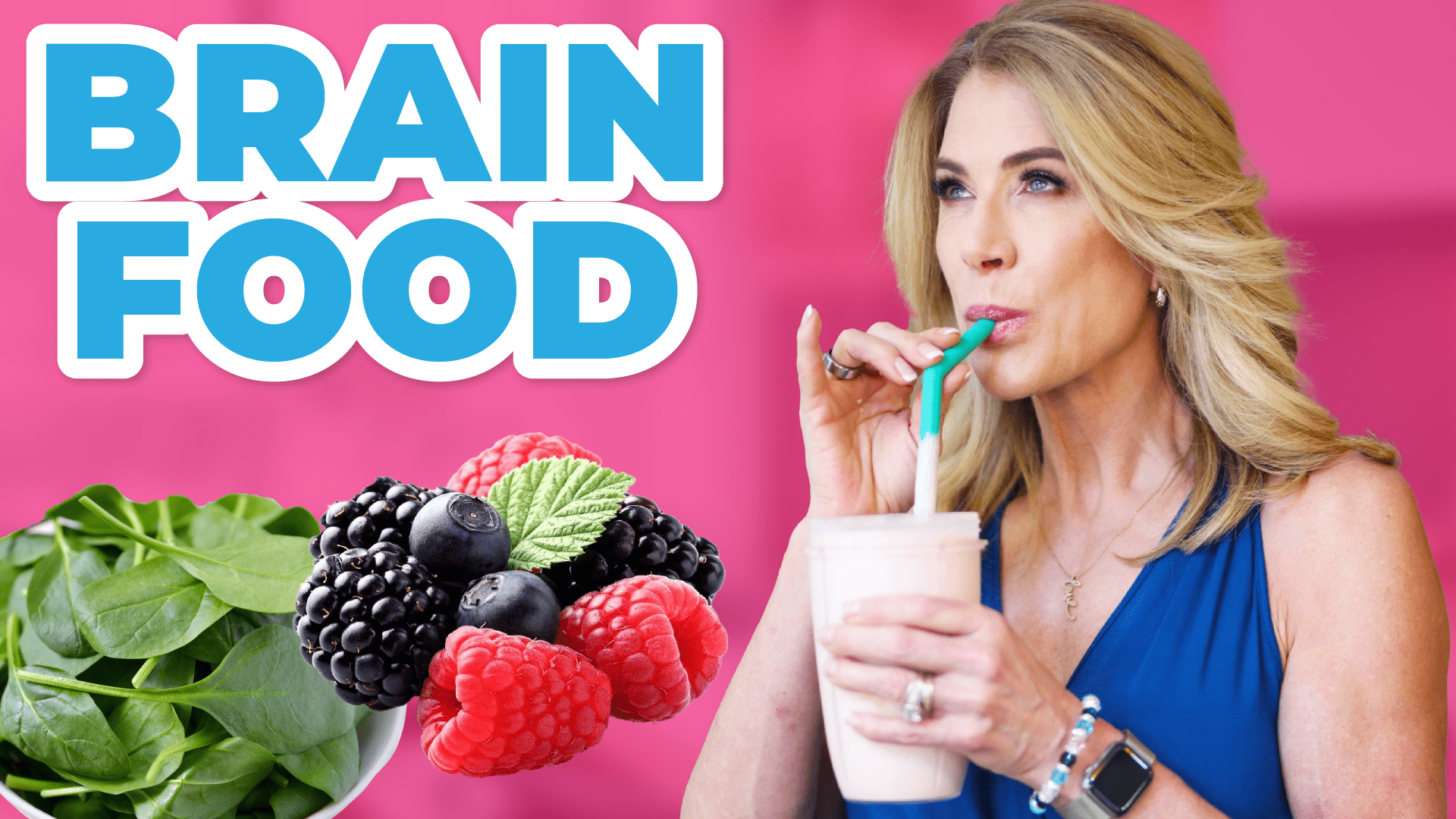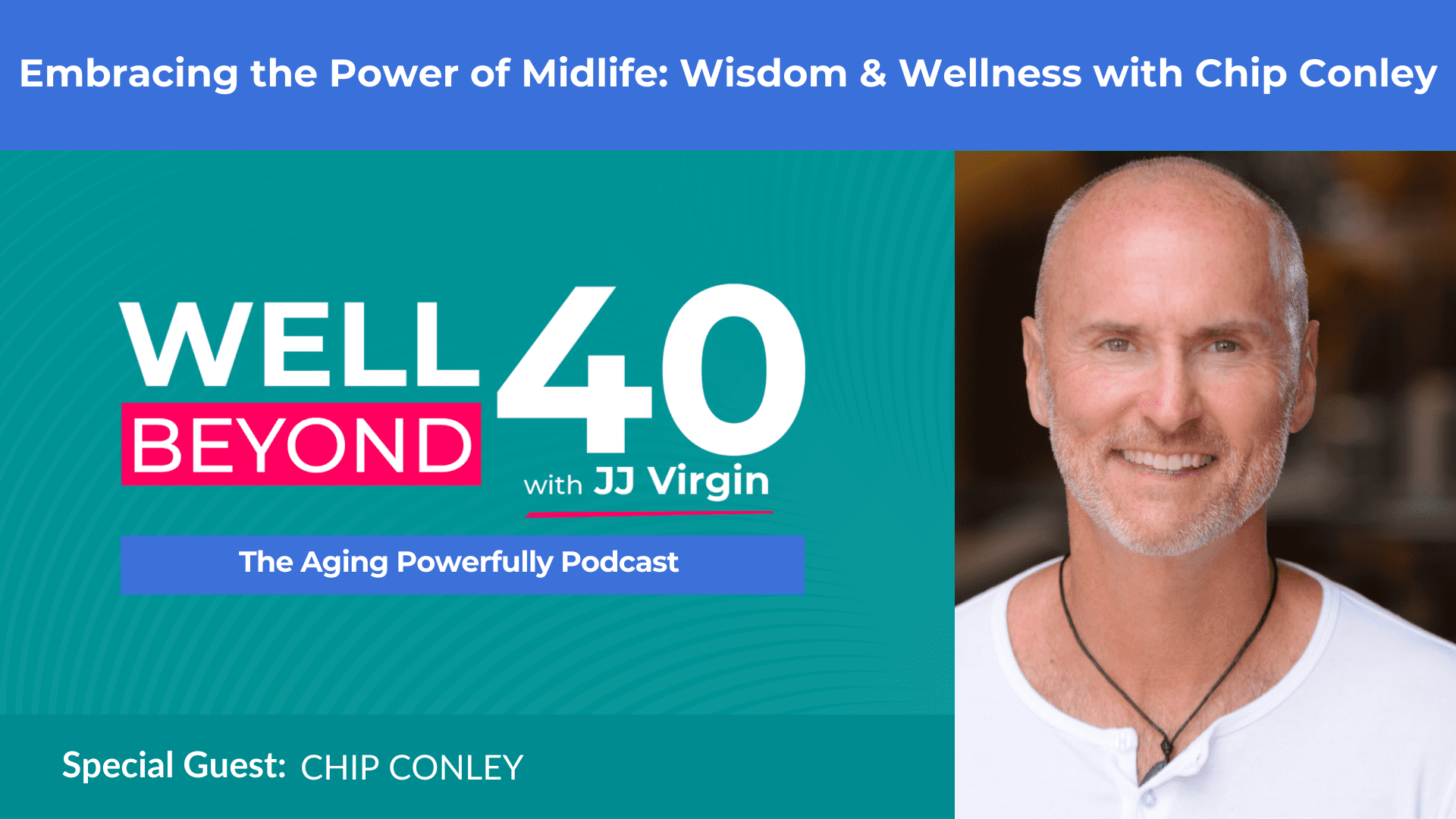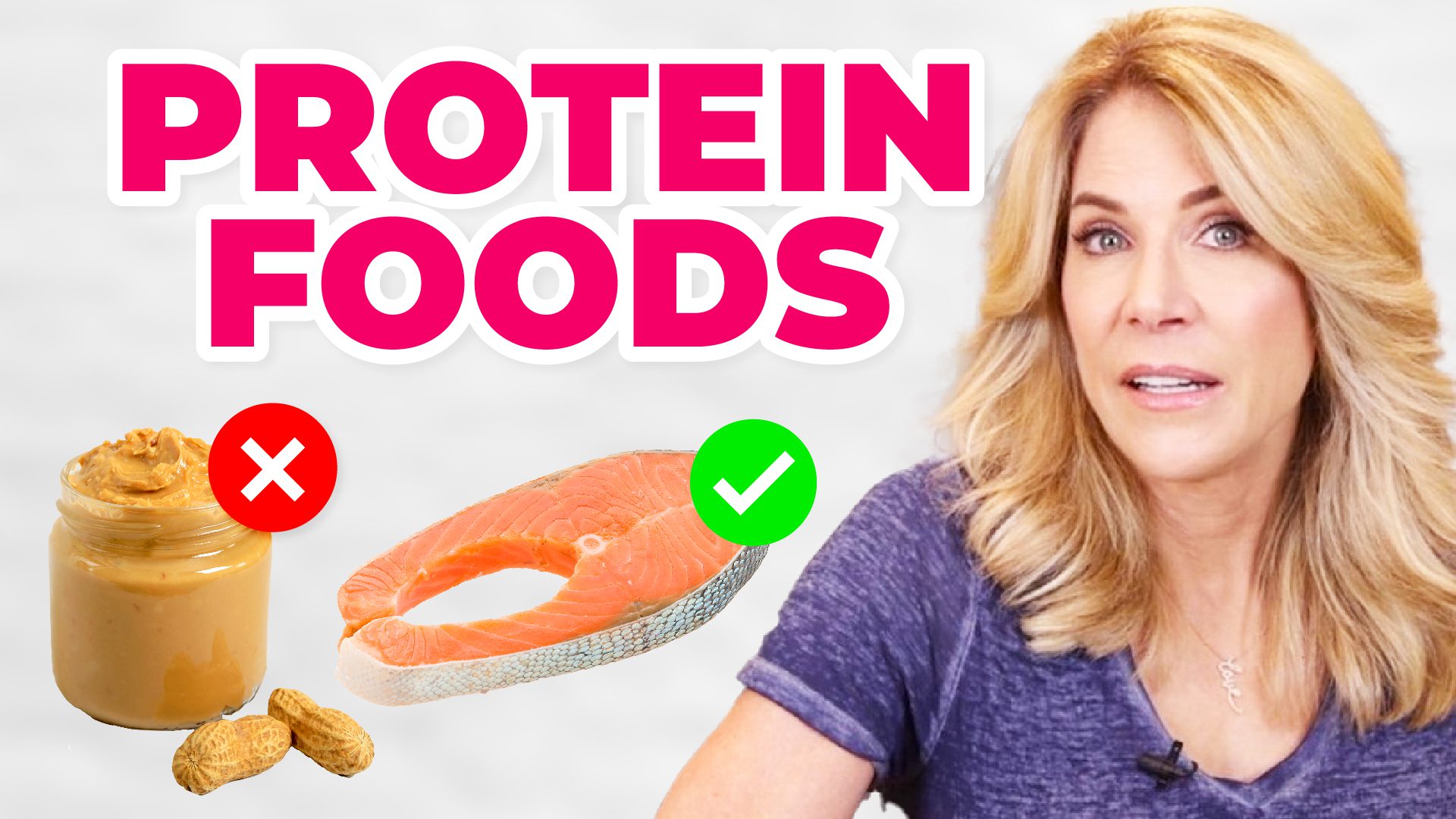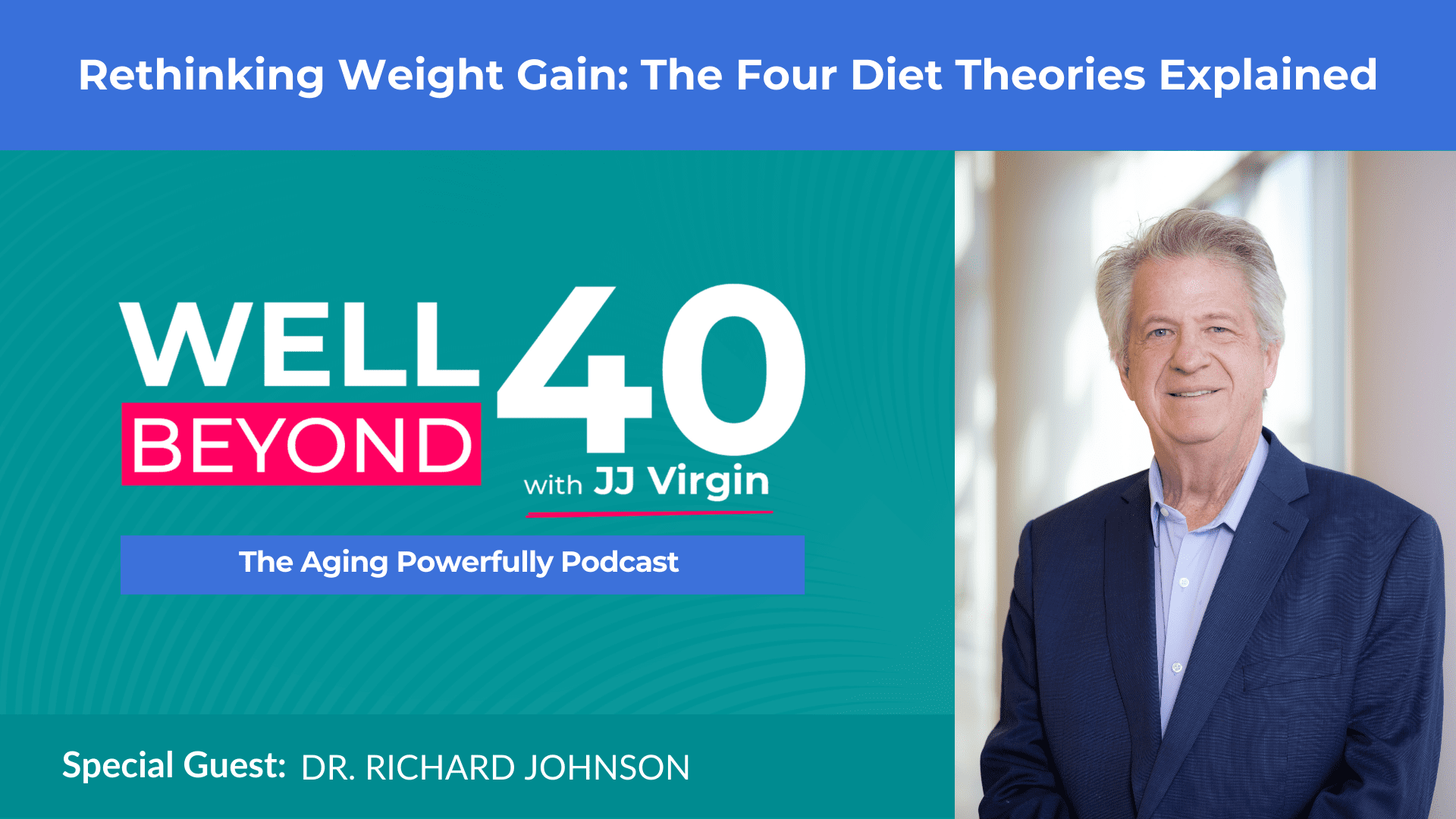Delicious Ways to Support Mood, Memory, and Clear Thinking
Want a really simple way to boost your brain health? Eat more of the right foods.
With a few simple tweaks to your diet, you can give your brain the nutrients it needs to function at its best. Even better, these foods are delicious, versatile, and super easy to find. In this episode, I’m telling you which foods to get more of, how they help, and I’m even sharing a few tips for incorporating them into your meals.
If you want to keep brain fog, inflammation, and cognitive decline at bay, you don’t want to miss this one!
Timestamps
00:01:10 – My favorite brain boosting food
00:02:30 – This food can support your mood and longevity
00:04:01 – Eat more of these for enhanced blood flow to your brain
00:05:07 – My desert-island pick for brain health
00:06:15 – How dark leafy greens support brain function
00:07:30 – Plant sources of omega 3s and other crucial nutrients
00:08:59 – Can berries slow the aging process?
00:10:48 – These are basically nature’s supplements
00:11:50 – I’ve been working these into my diet because of new research
Resources Mentioned in this episode
Watch the FULL VIDEO on my YouTube Channel
Get 60 FREE delicious, protein-packed shake recipes in my Eat Protein First Smoothie Guide
Download 5 Gut-Healing Strategies for Lasting Energy and Weight Loss
VIDEO Do 3 Things as Soon as You Wake Up for Peak Energy ALL Day
Plant-Based Yogurt Siggi’s Icelandic yogurt
Get wild-caught fish and seafood from Vital Choice
Reignite Wellness™ Amino Power Powder
Reignite Wellness™ Extra Fiber
Reignite Wellness™ Curcumin Chews
Butcherbox grass-fed & grass-finished beef
Try Pique Tea
ATHE_Transcript_Ep 638_9 Foods That Supercharge Your Brain Health – Eat These Daily!
[00:00:00] I'm JJ Virgin, Ph. D. dropout, sorry mom, turned four-time New York Times bestselling author. Yes, I'm a certified nutrition specialist, fitness hall of famer, and I speak at health conferences and trainings around the globe, but I'm driven by my insatiable curiosity and love of science to keep asking questions, digging for answers, and sharing the information I uncover with as many people as I can.
[00:00:26] And that's why I created the Well Beyond 40 podcast. to synthesize and simplify the science of health into actionable strategies to help you thrive. In each episode, we'll talk about what's working in the world of wellness, from personalized nutrition and healing your metabolism, to healthy aging and prescriptive fitness.
[00:00:45] Join me on the journey to better health, so you can love how you look and feel right now, and have the energy to play full out at 100.
[00:01:00] Are you tired of feeling sluggish and mentally foggy throughout the day? Okay, here's the deal. Don't chalk it up to age. It has a lot to do with what's on the end of your fork, which is awesome because you can change this. You can literally supercharge your brain and boost your brain power with the right foods.
[00:01:17] Starting with one of my most favorites of all time that I eat at least twice a week and that is Wild Salmon. Wild Salmon is a rock star because of two very specific things besides the fact that it's protein, right? It's got omega 3s and astaxanthin. So omega 3s, especially EPA and DHA, are fundamental for brain health.
[00:01:40] Omega 3s support good cognitive function, they support memory, they support mood regulation, and they help maintain the structural integrity of the brain cell membranes, which means you're going to have good communication between the brain cells. And they also protect against age-related cognitive decline.
[00:01:58] Now the other one that I mentioned was astaxanthin. So, you got the fish, the salmon. They are swimming up top of the water and the sun beats down on them and the astaxanthin is how they protect themselves. It is what makes them pink. It's an antioxidant. It crosses the blood brain barrier and it helps reduce inflammation.
[00:02:18] And it also reduces the risk of neurodegenerative diseases like Alzheimer's. Also, a little hack for you is you can use this, it can help you protect your skin from the sun. Bonus points. Alright, the next one that I eat multiple times a week is grass-fed and finished beef. This can do lots of good things for mood and for depression and even for longevity.
[00:02:42] Although I know we're not talking about that here. So, grass fed beef is what you want, especially grass fed and finished. That's super important, okay? Because all beef's grass fed, it's the grass finished that's mission critical. And what you want is one that's raised without added hormones and antibiotics because those can, of course, impair your gut microbiome.
[00:03:02] What's great about grass-fed beef, it has a different fatty acid profile than grain fed beef. It's got more omega 3 to omega 6. It's those big omega 6s that cows will get when they're eating things like corn that can contribute to inflammation, which of course then could be problematic for your mood and mental health as well.
[00:03:23] So grass fed beef has higher levels of omega 3s, especially compared to corn-fed beef, right? And omega 3s, as I just said, are mission critical for your brain health, and they can help reduce the risk of mood disorders like depression. The other thing about grass-fed beef is that it's a great source of nutrients like zinc and B vitamins, especially B12, and iron.
[00:03:46] And these nutrients are critical for optimal brain function and mood regulation. It also contains the amino acid tryptophan, which is a precursor to serotonin. And you've heard about serotonin. This is that one that's really helpful for having a happy, great mood. Next up are beets. So, beets are something that if we, uh, could do every single day would be great.
[00:04:08] If you could incorporate some beets into your day. daily life, maybe keep some shredded that you can add into your salad, roast some, put them into your dinner. Beets are critical because they're rich in nitrates and nitrates help make nitric oxide. That is what's going to help enhance blood flow to the brain and can also help relax and dilate blood vessels.
[00:04:29] Improved blood flow is, of course, super important. It's going to support cognitive function, including good memory and decision making. And beets also have these antioxidants called betalains and vitamin C. And these are protective to the brain cells from oxidative stress and inflammation, which also reduces the risk of cognitive decline.
[00:04:50] The other thing that beets have are they have vitamin B9 folate and folate is essential for brain development and cognitive function. In fact, adequate folate intake is associated with a reduced risk of cognitive decline. Now, I've already talked about a couple of my favorites, wild salmon, grass fed beef.
[00:05:10] But here's one that if you said, okay, you're going on a desert island, what can you not live without? It'd be coffee. So coffee and tea are also helpful for your brain. Caffeine is a natural stimulant, it doesn't take a rocket scientist to know that, that enhances alertness, concentration. and mental clarity and can have mood enhancing effects because it increases the release of neurotransmitters like dopamine and serotonin but independent of the caffeine.
[00:05:38] Coffee also is loaded with antioxidants such as chlorogenic acid in coffee and Tea also has EGCG, and these help protect the brain cells from oxidative stress and inflammation. And speaking of green tea, green tea also has L theanine. This is the calming amino acid. It promotes relaxation and this is wild, while you're relaxing, a mental alertness.
[00:06:04] So it gives you relaxation and alertness at the same time. Now, black tea contains compounds that can improve blood vessel function, potentially enhancing blood flow to the brain. Deep green leafies. Now, when I'm talking deep green leafies, I'm not talking romaine lettuce. I'm talking spinach and kale and Swiss chard.
[00:06:23] These are loaded with antioxidants, vitamin C and vitamin K, and phytochemicals. And these are what are helping protect your brain cells from oxidative stress and inflammation, again, supporting long term cognitive function. Plus, these are all rich in vitamin K. And vitamin K is involved in processes that enhance cognitive function and may reduce the risk of cognitive decline as you age.
[00:06:48] Plus, there are nitrates in these leafy greens that can help relax blood vessels and promote improved blood flow to the brain. They're also a great source of folate, vitamin B9, again, critical for brain development and function and some leafy greens like spinach contain small amounts of omega 3 fatty acids. Plus, all of these are rich in dietary fiber which we know is super important for your gut health and we're hearing more and more about that connection between gut health and brain health.
[00:07:20] This is one that you want to start adding into your diet, ideally a couple cups a day. Throw a cup into your smoothie, you won't even notice it. Get yourself a nice super green plant. Next up, nuts and seeds. Now, there's a couple different types of omega 3s. There's ALA, EPA, and DHA. We think of EPA and DHA from fish, which is fantastic.
[00:07:40] We get a couple, a little bit of omega 3s from meat, but we often don't realize we can get them from plants as well. It's a different source, ALA. But you'll get that from walnuts, from flaxseeds, from chia. So they're great anti inflammatories. Plus you also get antioxidants, especially vitamin E and you get mono and polyunsaturated fats.
[00:08:02] And these fats are important for maintaining the structural integrity of brain cell membranes and ensuring efficient communication between the brain cells. Now, one other thing that's. In nuts, especially almonds and pumpkin seeds is magnesium and magnesium supports brain health by promoting relaxation and reducing stress and anxiety.
[00:08:22] I've mentioned folate before. You're also gonna get folate and B vitamins in your nuts and seeds. And of course this is important for brain development, cognitive function. And then finally, you're getting some healthy fats in those nuts and seeds, and you're gonna get some protein as well. Now they're high in fat, but they are moderate in protein.
[00:08:40] They have some protein in there. that's going to be important for getting those amino acids that you need for neurotransmitter synthesis. And they're rich in fiber, and really rich in fiber, and that's super important again for that gut brain connection. You're really helping the gut microbiome be optimized.
[00:08:59] [00:09:00] Speaking of fiber, another food that's rich in fiber that I just love and I eat every single day are Berries. Now, you want to eat a variety of berries of all the different colors so you get those antioxidants, those anthocyanins and flavonoids. This is important because this helps combat oxidative stress and inflammation, helps protect the brain cells from damage, which of course then reduced your risk of cognitive decline.
[00:09:24] And, that high antioxidant content, these are serious powerhouses for antioxidants, may help slow the aging process and reduce the risk of neurodegenerative diseases, again like Alzheimer's. Plus, berries have anti-inflammatory properties, in fact, regular consumption of berries has been linked to improved memory and cognitive function.
[00:09:45] and may delay age related memory loss and maintain mental sharpness. In fact, some studies suggest that compounds in berries can also enhance the blood flow to the brain, which is of course important because improved [00:10:00] blood circulation supports cognitive performance, including attention and mental clarity.
[00:10:05] Now, berries also have vitamin C, especially ones like strawberries. Strawberries are a vitamin C powerhouse that can boost the mood by promoting the release of neurotransmitters like serotonin. These are one of the staples of my smoothies and I eat blueberries by the handful every single day and an easy way to get a lot of these foods.
[00:10:26] Think about it, the seeds, the berries. The beef, you can do bone broth protein. The deep green leafies is by putting them to your loaded smoothies. So I've got a lot of these foods in my smoothie guide. There's over 60 recipes incorporating again, the greens, the berries, the protein, the nuts, and the seeds at jjvirgin.com/loadedsmoothie.
[00:10:45] Grab it there. Now, beyond that, let's look at spices. Spices are like nature's supplements, right? And I think of spices, I always think first of turmeric. Now, curcumin is turmeric's active compound. It is a potent antioxidant and anti-inflammatory agent. It may help delay or reduce the risk of neurodegenerative diseases, again, Alzheimer's and Parkinson's.
[00:11:14] It can also increase levels of BDNF, that's brain derived neurotrophic factor. That's something that we can get raised with exercise too, hint-hint. And this is a growth factor that promotes the growth and maintenance of brain cells. I will tell you my son who's had a traumatic brain injury, this is one of the First things that I've put them on and had them on for the last decade.
[00:11:35] Curcumin can enhance mood by increasing the availability of serotonin and dopamine in the brain, and curcumin can also enhance blood vessel function and improve blood flow, which again, supports cognitive performance and mental alertness. Now, one more thing that I have been working into my diet are fermented foods.
[00:11:55] Fermented foods are rich in probiotics, which are beneficial bacteria that promote a healthy gut microbiome. And emerging research highlights the strong connection between gut health and brain health. A balanced gut microbiome can positively influence mood, cognition, and brain function. And, it can also help reduce systemic inflammation in the body.
[00:12:18] Now, I talk about fermented foods and four other ways to support your gut in my free guide, Five Gut Healing Strategies for Lasting Energy and Weight Loss, which you can get at jjvirgin.com/5ways. And that's the number five. Now, what happens when you ferment a food? When you ferment a food, you break down nutrients, you make them more bioavailable, which can enhance the absorption of brain boosting nutrients like B vitamins and antioxidants,
[00:12:43] again, critical for cognitive function. And then there's some fermented foods like kimchi and kefirs that contain GABA. And GABA is this calming neurotransmitter that helps, can help reduce anti, reduce anxiety, can help promote
[00:13:00] good sleep and overall well being. And here's the thing, I wish I loved kimchi.
[00:13:05] In fact, I even went to Korea this year and it's pretty tough to do. But see what you can get yourself doing on the daily or at least a couple times a week in eating fermented foods. We recently found a yogurt called Siggi's that makes a plant-based coconut yogurt with added protein that is absolutely delicious.
[00:13:25] So there are some great options out there, especially if you're dairy free. Now there's all sorts of different yogurts and fermented foods made out of nuts and seeds. So, see what you can find that you love. And bonus points if you go for the kimchi. Now, here's the deal. Now you know what to eat, but you're also going to want to support yourself with a solid morning routine,
[00:13:45] so you stay energized and mentally strong all day long. Watch this next video on the first three things you should do every morning for peak energy all day long. Be sure to join me next time for more tools, tips, and techniques you can incorporate into everyday life to ensure you look and feel great.
[00:14:03] And more importantly, that you're built to last and check me out on Instagram, Facebook, YouTube, and my website, jjvirgin.com. And make sure to follow my podcast so you don't miss a single episode at subscribetojj.com. See you next time.

 Subscribe to our show
Subscribe to our show 




